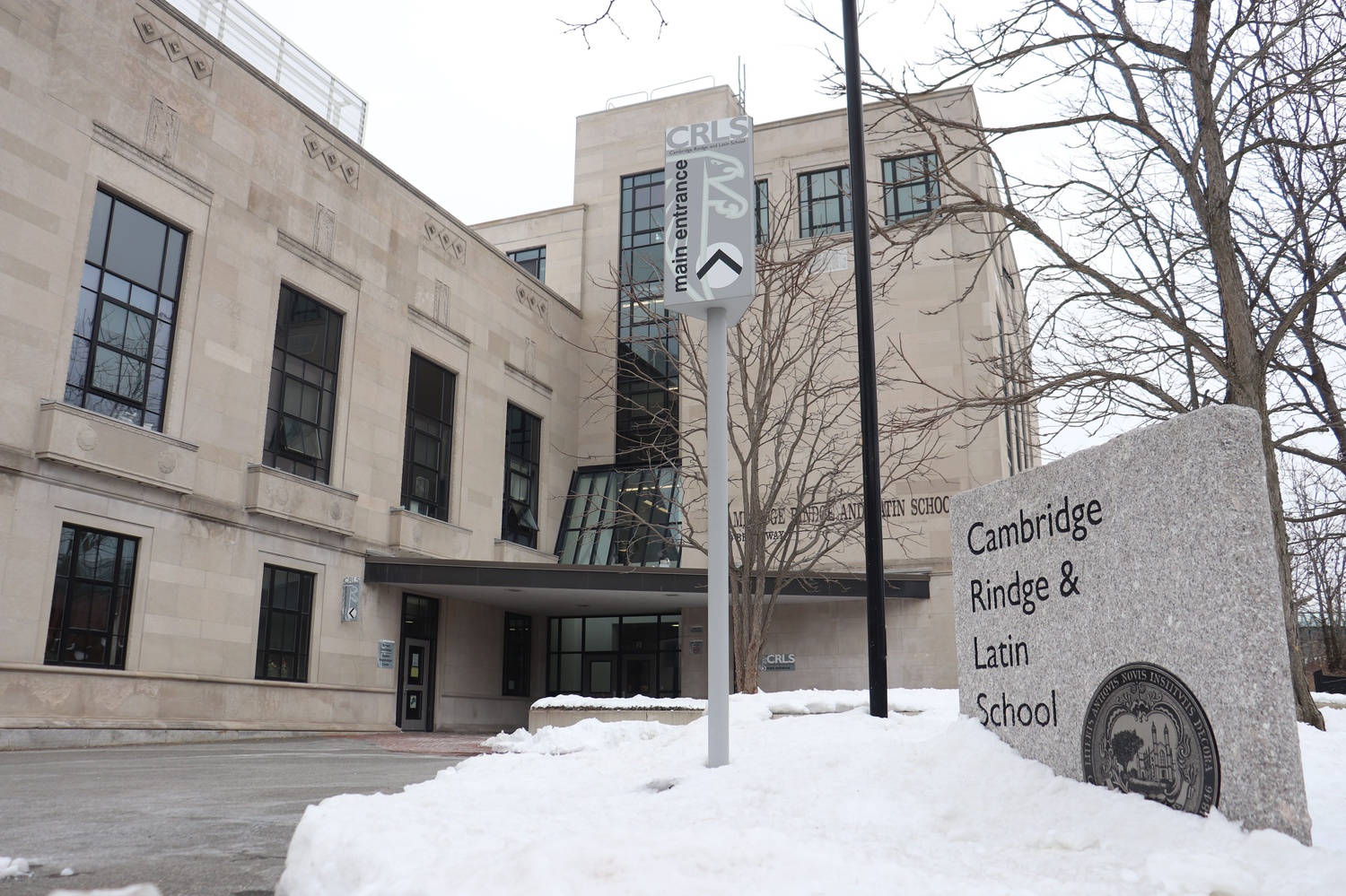
News
Cambridge Residents Slam Council Proposal to Delay Bike Lane Construction

News
‘Gender-Affirming Slay Fest’: Harvard College QSA Hosts Annual Queer Prom

News
‘Not Being Nerds’: Harvard Students Dance to Tinashe at Yardfest

News
Wrongful Death Trial Against CAMHS Employee Over 2015 Student Suicide To Begin Tuesday

News
Cornel West, Harvard Affiliates Call for University to Divest from ‘Israeli Apartheid’ at Rally
Harvard Faculty and Cambridge Students Speak Out Against AP African American Studies Ban

Harvard faculty and Cambridge Rindge and Latin School affiliates condemned a ban of the College Board’s Advanced Placement course “African American Studies” in Florida by the state’s Governor Ron DeSantis, who alleges the course puts “indoctrination” over education.
The course — which was developed by a committee that included Harvard professors Henry Louis “Skip” Gates Jr. and Evelyn Brooks Higginbotham — launched as a pilot program in 60 high schools for the 2022-2023 academic year. This fall, more than 500 high schools will join the program before it is widely offered in fall 2024.
DeSantis, who graduated from Harvard Law School in 2005, announced a statewide ban on the AP course last month due to what he described as a misalignment with Florida’s “Stop WOKE Act,” which prohibits schools from teaching critical race theory — the cross-disciplinary study of institutional racism.
The College Board published post-pilot changes to the course on Feb. 1, which include a move away from critical race theory. Still, an internal document circulated to teachers by the College Board denies that the course was altered “to appease” conservatives or the state of Florida, instead describing that changes incorporated recommendations from hundreds of professors.
Harvard Kennedy School professor Khalil Gibran Muhammad called DeSantis’ rejection of the course a “frontal assault on the independence of educators.”
“When there is an explicit or implicit challenge to an AP course that will more or less shape the curriculum of all students taking the class in all classrooms around the nation — and every college and university that will receive an appeal for credit from students who pass the exam associated with it — that’s a national issue,” Muhammad said. “People need to see that for what it is.”
Muhammad is one of 200 African American Studies faculty in higher education from across the U.S. who penned an open letter on Jan. 31 to condemn DeSantis’ ban. The letter had more than 700 signatures as of Monday evening.
“The contention that an AP curriculum in African American studies ‘lacks educational value’ is a proposition supported by white supremacist ideology, because it fundamentally demeans the history, culture, and contributions of Black people,” the letter reads.
Harvard Graduate School of Education professor Meira L. Levinson, who spoke against DeSantis’ block, said it is “important to explore lots of different dimensions of African American culture and life and history.”
“It’s important to recognize that this is an African American Studies course that’s being proposed, and not just an African American history class that’s being proposed,” Levinson said.
Levinson also cited research that shows the positive benefits of taking ethnic studies courses for some students.
“There’s a growing body of research that is pretty clear that these courses can have really important effects — positive effects — on kids’ learning, kids’ attendance, kids’ graduation rates, kids’ sense of self-confidence, self-efficacy,” Levinson said.
One of the 60 high schools that participated in the pilot program this year is Cambridge Rindge and Latin, a public school in Cambridge.
CRLS history teacher Rachel Williams-Giordano said she was “jumping at the opportunity” to teach AP African American Studies after first hearing about the course.
“My hope is that I will see the same amount of kids and enthusiasm that enroll into my APUSH and AP Government and Politics class in my AP African American Studies class,” Williams-Giordano said.
Williams-Giordano said she made an effort to prioritize a diversity of perspectives — including “conservative ideology” — in her version of the pilot course.
“Some of the more well-known Black conservatives, I use their frame of argument — like Candace Owens was frequently used in the class,” Williams-Giordano said. “Despite what Governor DeSantis is saying, I do — and other AP African American Studies teachers — we try to bring in alternative perspectives.”
CRLS’ iteration of the course included debates on topics including reparations, the teaching of critical race theory, and rapper Kanye West, according to Williams-Giordano and her students.
“We had a whole unit and we had a debate every day of the week. And she assigned our groups; we had to argue for whatever side we were assigned on whether we personally agreed with that or not,” said Ruth Andre, a member of Williams-Giordano’s AP African American Studies class.
Helen Hailemariam, a senior at CRLS, said taking Williams-Giordano’s class last fall felt like being in a “family.”
“I didn’t feel like I had to be the model minority,” CRLS senior Halima Osman said. “I could come into the room being loud and I wasn’t the loud Black woman in the room.”
Still, Hailemariam — an incoming freshman at Harvard — said the opportunity to take AP African American Studies should not be “a privilege.”
“I should be able to learn about a history that’s in relation to my identity, and I should be able to feel affirmed, my classroom experience should be supportive, it should be collaborative, and I shouldn’t feel like I have to sacrifice parts of my identity or ways of being to fit in,” Hailemariam said.
—Staff writer Azusa M. Lippit can be reached at azusa.lippit@thecrimson.com. Follow her on Twitter @azusalippit.
Want to keep up with breaking news? Subscribe to our email newsletter.
